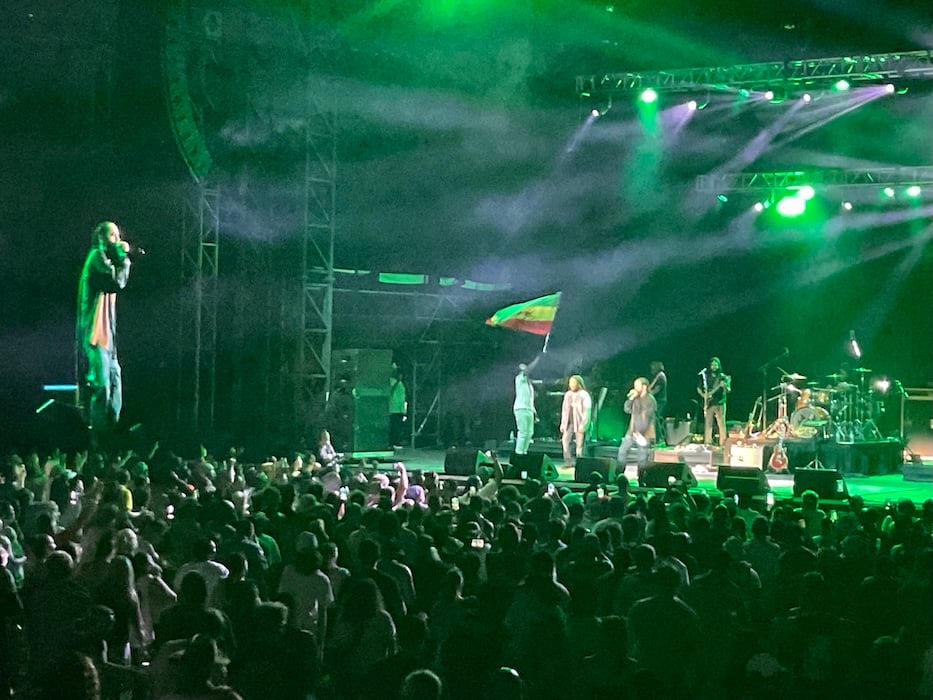
Shaunda Holloway Photo.
The legendary Robert Nesta “Bob” Marley is very much alive. That is, at least, if you listen to his sons, Stephen and Damian Marley.
Marley’s world-altering sound and legacy blessed the Westville Music Bowl Tuesday night, as the brothers performed for hundreds who had come out to hear them play. Both seasoned musicians and frequent collaborators—between them, the two hold almost a dozen Grammy awards—the brothers honored the memory of their father, while also bringing something entirely of their own to the show.
If Bob Marley launched a revolution with his music and his vision for a more just world, the two continued it Tuesday night.
“It is always good to be in Connecticut,” said Damian to a crowd that roared back. Buoyed by their music, the brothers strutted around the stage with feathered fedoras tipped to the side, Stephen smiling playfully as Damian bopped and their words filled the air with joy. Couples swayed in the moonlight. Jamrock blasted from the speakers.
Even before the two took the stage, that energy was contagious. As evening began to fall around New Haven, the concert kicked off with Hawaiian recording artist J Boog, leading the audience with a slow simmer of rhythms bubbling over with rich vocals.
His 2011 hit “Let’s Do It Again,” for instance, hyped the audience up with its daring lyrics and melody as the artist crooned. With a large band and female vocalist behind him, J Boog chanted the word “aloha!” urging the crowd to join him. It gave off a vibe of good energy that lasted for the rest of the night.
Upon intermission the crowd marinated in anticipation. It didn’t matter how long or short the wait, the Marley brothers had earned their fans.
The subsequent performance was a gift. If you never saw Bob Marley perform live—or maybe if you did—you saw him through his sons. At the same time, you saw each artist’s own unique flavor.
During their solos, for instance, Stephen emerged, and Damian stepped back, dancing to the rhythms at a distance as the light shined on his brother. Then Damian emerged, and Stephen receded—a tide of humility, respect, and love.
From the two electric guitarists plucking chords in acute synchronicity to the introduction of Jamaican dancehall wizard Baby Cham, the crowd was aglow.
Cham sang the lyrics of “Ghetto Story,” a song made popular by its fierce delivery.
“Wi get di ting de / so dem haffi rate wi,” he belted. “ And now the whole community / a live greatly / Rah Rah Rah” Concert goers were sonically well fed.
The final surprise was delivered by 15-year-old Elijah Marley, son of Damian. The young singer and drummer belted out “Right outside of this one church town / There’s a whole lot of nothing / Got a deed to the land but it ain’t my ground / This is God’s country.”
He shifted between tempos singing passionately and dancing with the signature Marley leaps of both his father and grandfather. In the crowd, attendees cheered him on.
If it’s any indication, the road ahead is paved with good music. Marley Magic transcends all barriers. The search for social justice and soul coexist—just like Robert Nesta Marley intended.